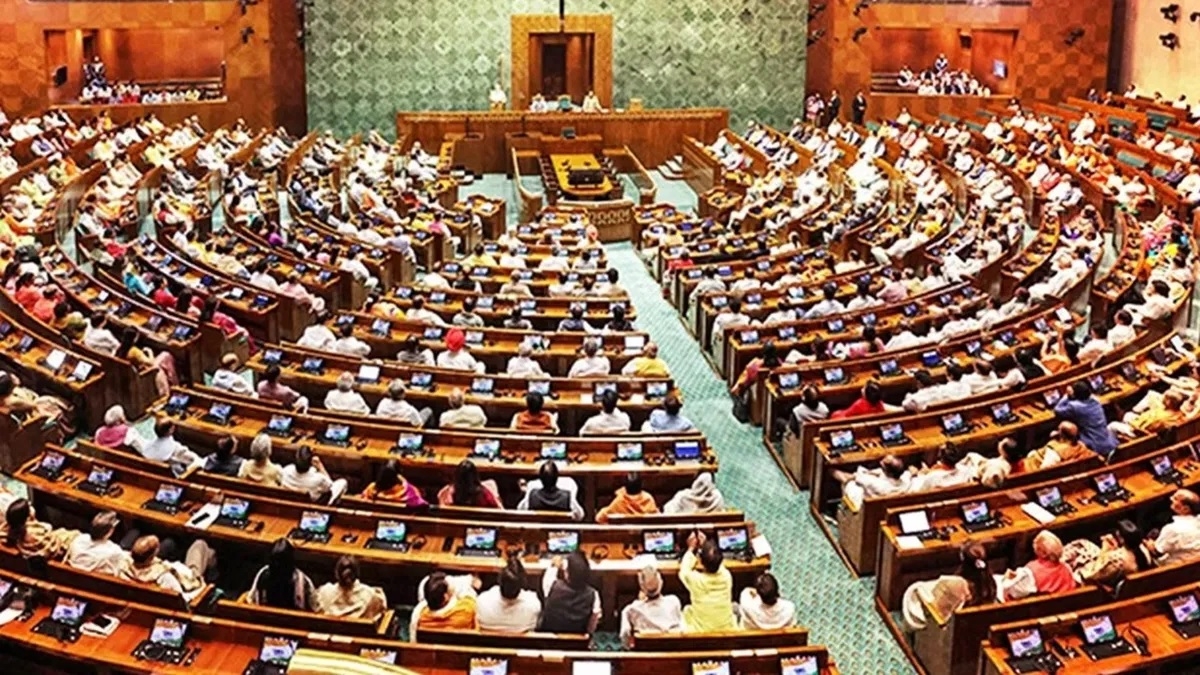Budget Session ends with over 100% productivity
| Date :05-Apr-2025 |

NEW DELHI :
PARLIAMENT’S nod to the Waqf (Amendment) Bill rendering it the Government’s most consequential piece of legislation in its third term, and the political heat it generated inside and outside the legislature defined the second half of the Budget Session which ended on Friday.
Punches and counterpunches between the ruling BJP-led NDA and Opposition INDIA bloc, which showed signs of common purpose during as the session drew to a close, ran through the sitting that saw more than 100 per cent productivity in both Lok Sabha and Rajya Sabha.
Debates scored over disruption in this session during which 16 Bills were approved by the two Houses and the President’s rule in Manipur received Parliament’s nod during post-mid night discussions in both chambers.
Parliamentary Affairs Minister Kiren Rijiju told reporters that the productivity of Lok Sabha during the session, which began with an address by President Droupadi Murmu on January 31 and ended on Friday with a recess from February 14 to March 9, was 118 per cent and that of the Upper House 119 per cent.
He said history was created and old records broken in Rajya Sabha when it sat without a break for 17:02 hrs from 11 AM on Thursday to the early hours on Friday to debate and pass the Waqf bill besides endorsing President’s rule in Manipur.
He noted that a live discussion on the bill was seen in both Houses without any disruption and occasional exchanges of sarcasm and banter.
After both the ruling National Democratic Alliance and the opposition INDIA bloc voted along the party lines on the Bill, Rijiju said a similar pattern in polling was witnessed in Rajya Sabha save for “conscience” voting by some members, which boosted the strength of the treasury benches.
Waqf Bill: Jawed, Owaisi move SC
NEW DELHI,
Apr 4 (PTI)
CONGRESS MP Mohammad Jawed and AIMIM President Asaduddin Owaisi on Friday challenged the validity of the Waqf (Amendment) Bill, 2025 in the Supreme Court, saying it violated the constitutional provisions.
Jawed’s plea alleged the bill imposed “arbitrary restrictions” on Waqf properties and their management, undermining the religious autonomy of the Muslim community.
The petition, filed through advocate Anas Tanwir, said the proposed law discriminated against the Muslim community by “imposing restrictions that are not present in the governance of other religious endowments”.
The bill was passed in the Rajya Sabha with 128 members voting in favour and 95 opposing it. It was passed in the Lok Sabha early April 3 with 288 members supporting it and 232 against it.
Jawed, a Lok Sabha MP from Kishanganj in Bihar, was a member of the Joint Parliamentary Committee on the bill and has alleged in his plea that the bill “introduces restrictions on the creation of Waqfs based on the duration
of one’s religious practice”.
“Such a limitation is unfounded in Islamic law, custom or precedent and infringes upon the fundamental right to profess and practice religion under Article 25,” it said.
Owaisi said the bill takes away from Waqfs various protections which were accorded to Waqfs and Hindu, Jain, and Sikh religious and charitable endowments alike. Owaisi’s plea, said, “This diminishing of the protection given to Waqfs while retaining them for religious and charitable endowments of other religions constitutes hostile discrimination against Muslims and is violative of Articles 14 and 15 of the Constitution, which prohibit discrimination on the grounds of religion.”
Congress to challenge Waqf bill’s constitutionality in Supreme Court ‘very soon’: THE Congress on Friday said it will “very soon” challenge in the Supreme Court the constitutionality of the Waqf (Amendment) Bill, 2025 that has been passed in Parliament.
The Opposition party also said it will continue to resist all “assaults” of the Modi Govt on the principles, provisions, and practices that are contained in the Constitution.





